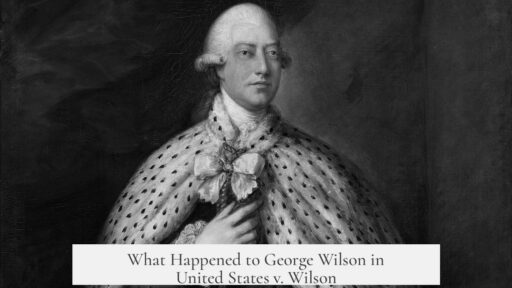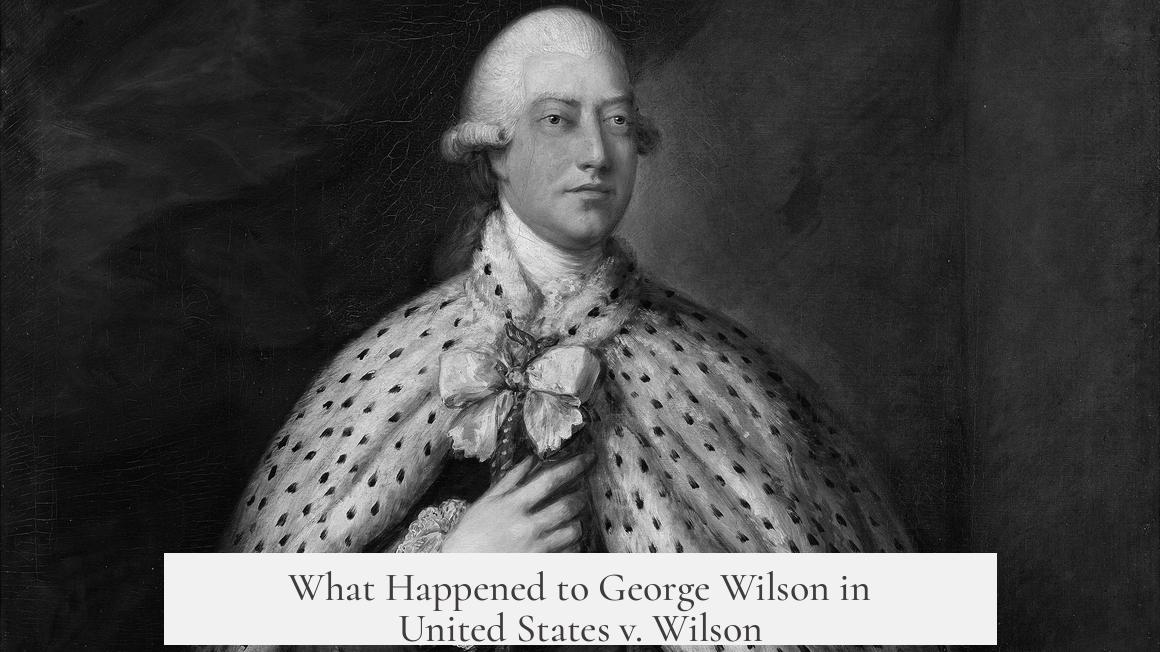The fate of George Wilson, the defendant in the landmark case United States v. Wilson, remains unknown. No definitive records exist detailing his life after the case, leaving his ultimate outcome a mystery despite some historical clues.
George Wilson was born around 1806 in Trenton, New Jersey. His early life was marked by hardship. Reports suggest his family lived in poverty. His father, initially a watchman and later a sailor, left young Wilson without proper guidance, which may have influenced his later choices. Wilson received a limited education and did not learn a trade, which contributed to his early brush with crime.
As a teenager, Wilson committed larceny and spent two years in Walnut Street Prison, Philadelphia. Upon release, efforts by a man named Wood arranged for Wilson to serve an apprenticeship in Delaware. For a time, Wilson showed signs of reform, working patiently and avoiding criminal activity. However, after being expelled from his apprenticeship, Wilson returned to casual farm labor in New Jersey. Over time, the virtuous impressions faded, and he relapsed into criminal behavior, later serving several years of hard labor in Maryland for theft.
While incarcerated in Maryland, Wilson met two men, James Porter and Abraham Poteet. Together, they planned a new life as highway robbers. Although Wilson claimed reluctance, the trio executed a series of mail coach robberies. The most notable robbery occurred on the night of November 26, 1829, when they attacked a mail coach between Philadelphia and Reading. They stole approximately $8,200 in cash—a significant sum at the time.
After their arrest, Wilson, Porter, and Poteet faced serious charges. Pennsylvania law punished highway robbery with death, especially if violence endangered lives. Wilson and Porter received the death sentence from Justice Henry Baldwin, while Poteet was treated as an accomplice and spared execution. Porter’s execution was carried out in June 1830. By then, Wilson had withdrawn his not guilty plea and pleaded guilty.
At this point, President Andrew Jackson became involved. Public opinion in Pennsylvania opposed the death penalty for such crimes. A prominent clergyman intervened, appealing directly to Jackson. After investigation, Jackson issued a pardon on June 14, 1830, sparing Wilson from execution. However, the pardon covered only the capital charge, not other lesser offenses. Wilson knew accepting the pardon meant continued imprisonment with hard labor for life.
Remarkably, Wilson refused the pardon in court. He stated he had nothing to say and did not wish to use the pardon. This unusual act drew Supreme Court attention in United States v. Wilson, where the Court ultimately ruled that a pardon requires acceptance to take effect. Wilson’s refusal thereby maintained his death sentence legally, though it was never carried out.
The reasons behind Wilson’s refusal remain speculative. No contemporary writings clarify his motives. Some suggest genuine contrition; others propose a legal strategy related to complicated charges. The Supreme Court called it “hardly necessary to speculate,” but provided no explanation.
After this unusual episode, Wilson disappears from clear historical records. The next mention appears in 1841 when several newspapers report a new pardon granted by President Martin Van Buren. These reports lack detail on the pardon’s scope or whether Wilson accepted it. This second pardon likely eased his imprisonment, but no confirmed documentation follows.
Research shows no evidence that Wilson was executed. Confusion exists because other men named George Wilson with capital sentences were executed decades later or were African American men unrelated to this case. Wilson, the defendant in United States v. Wilson, most likely avoided execution, distinguishing his fate from his executed accomplice Porter.
The defendant Wilson’s later life and death remain undocumented. No personal statements, prison records, or legal papers explain his choices or what became of him post-pardon. The mystery endures around the circumstances and consequences of his refusal of a presidential pardon.
| Aspect | Details |
|---|---|
| Early Life | Born c.1806 in Trenton, NJ; poor family background; limited education |
| Early Crimes | Larceny as a teen; two years in jail; later theft in Maryland with hard labor sentence |
| Mail Coach Robberies | Partnered with Porter and Poteet; major robbery in 1829; $8,200 stolen |
| Legal Outcome | Death sentence issued; Porter executed; Wilson pleaded guilty |
| Presidential Pardon | Andrew Jackson pardoned him in 1830 for capital offense only; Wilson refused it |
| Later Records | Second pardon in 1841 mentioned, no details on acceptance or later life |
| Final Fate | Unknown; no execution recorded; motives for pardon refusal unclear |
- Wilson did not accept Andrew Jackson’s 1830 pardon, an uncommon legal event.
- He avoided execution, unlike accomplice Porter.
- Wilson’s life after legal drama remains undocumented and unclear.
- His refusal motives and post-pardon actions rely on historical conjecture.
- No connection exists between this Wilson and the fictional character of the same name in The Great Gatsby.




